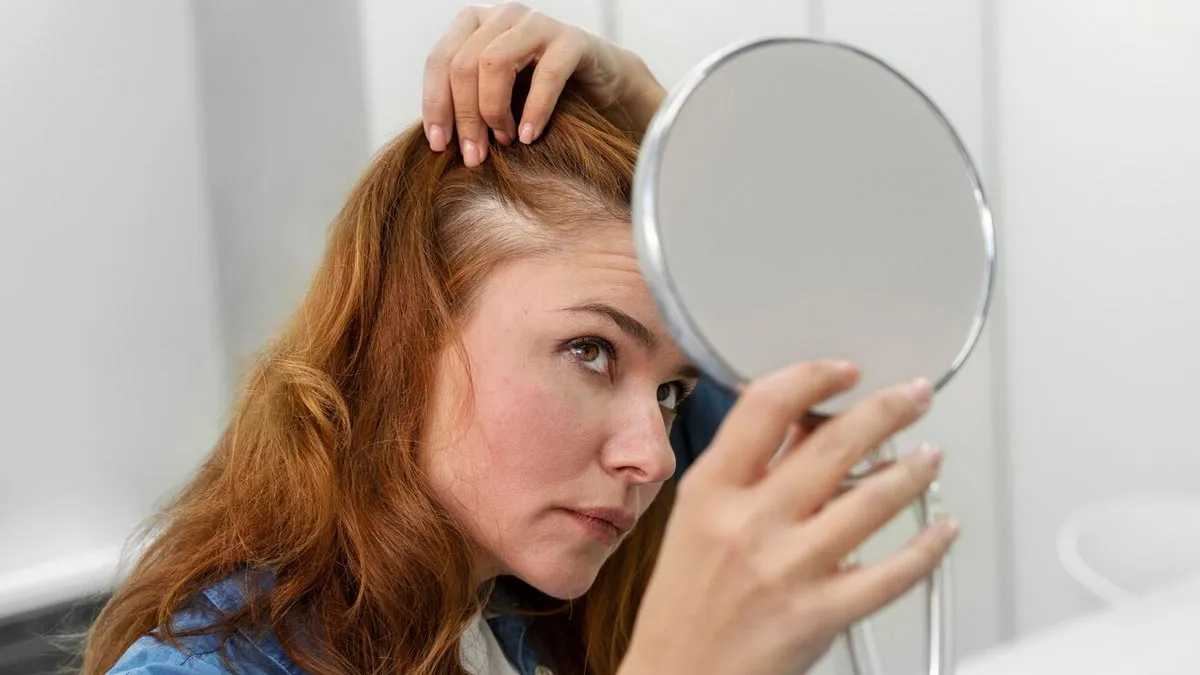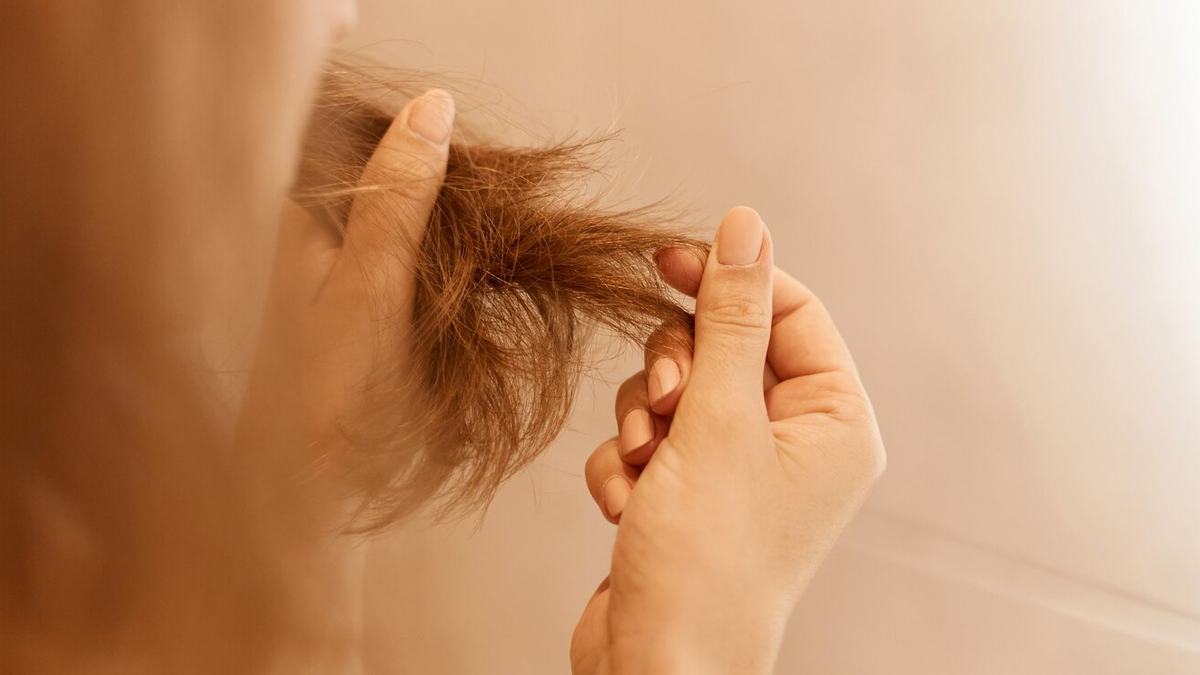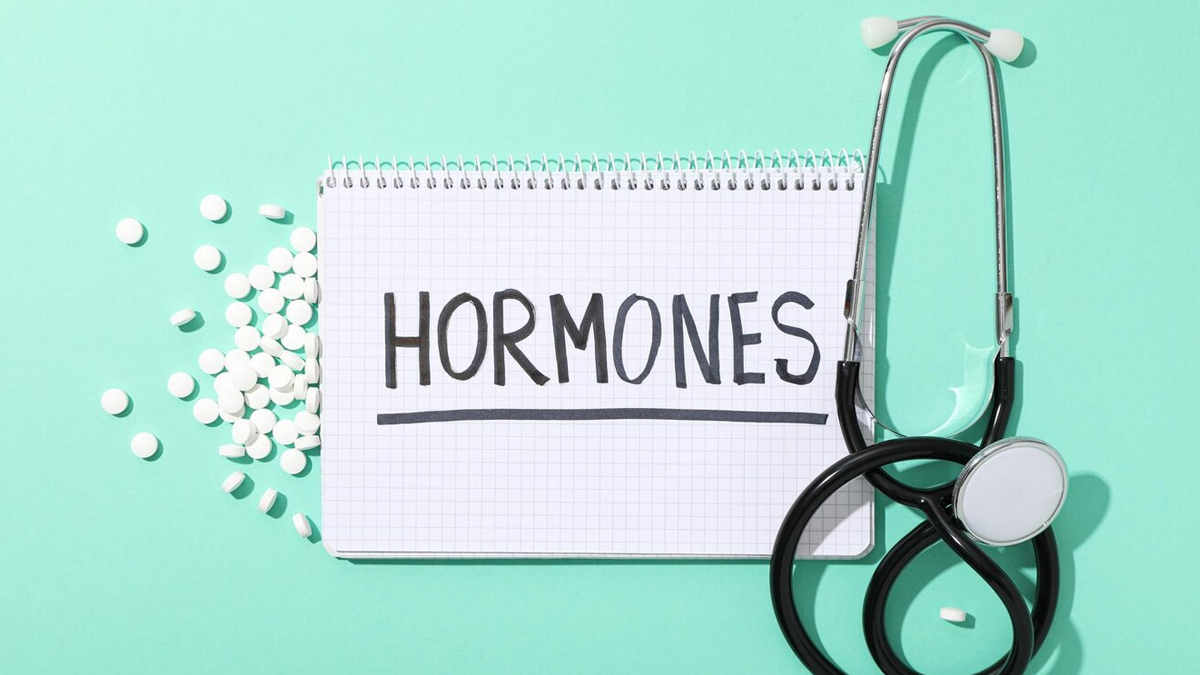
Have you ever looked in the mirror and wondered when your hair suddenly changed its appearance? One day it is thick, shiny, and full of life, and then, almost without warning, it starts thinning, greying, or feeling drier than before. As we age, our hair naturally evolves, and there are underlying reasons for it.
Table of Content:-
We spoke to Dr Vidushi Jain, Dermatologist and Medical Head, Dermalinks, Ghaziabad, Uttar Pradesh, who explained why your hair changes with age and what you can do about it.
Why Does Your Hair Change with Age?
1. The Natural Hair Life Cycle

"Your hair cycles through the stages of anagen (growth), catagen (transient), telogen (resting), and exogen (shedding). The anagen stage decreases with age and hence hair growth and density decrease with age," explained Dr Vidushi. During ageing, the follicles shrink and produce thinner hair.
2. Why Hair Begins to Grey
The most visible indication of ageing is greying. The reason is that the process of producing melanin decelerates, the pigment which colours hair. Melanocytes, the melanin-producing cells, slow down with increasing age and cause the hair to turn grey or white. There is genetic involvement here. If your parents' hair is also greying prematurely, there will surely be the same outcome for you.
Also Read: Could Your Hair Drying Habit Be The Reason Behind Your Dandruff?
3. Changes in the Hormones Contribute

With increasing age, hormonal imbalances, particularly in women during menopause and the reduction of testosterone levels in men, can significantly jeopardise the health of your hair. These changes may contribute to thinning, excessive hair loss, or changes in texture. A 2023 study revealed that a reduction in oestrogen and progesterone during menopause impacts hair follicle dynamics, which results in these changes.
4. Hair Volume and Textural Changes
It is a well-known fact that your hair becomes thinner, drier, or brittle with age. This is generally a consequence of decreased secretions of sebum (the natural scalp oil) and alteration in the hair shaft. Environmental stresses, heat styling, and chemical treatments over the years also take a toll, accelerating these changes.
5. Lifestyle and Nutritional Deficiencies
As one gets older, the body may not be able to absorb certain nutrients, such as iron, biotin, and vitamin D. Poor health and chronic low-level diseases can also cause limp, thinning hair. A balance of proteins, minerals, and antioxidants from food is of utmost importance in keeping hair healthy at any age.
6. Scalp Health Matters
"Ageing can also impact the health of the scalp. Decreased collagen and cell turnover can result in itchiness or flakiness of the scalp, making it less conducive to hair growth. Sulphate-free shampoo and daily scalp massage are advised," added Dr Jain.
Also Read: What Happens When You Apply Rosemary Oil On Your Hair Once Every Week? Doctor Tells
What You Can Do To Promote Hair Health?
Even if ageing can't be prevented, there are things you can do to delay or manage the changes your hair goes through as you age.
- Start with mild, non-additive shampoos that don't disrupt the natural pH of your scalp and don't introduce any extra damage.
- Another part of equal value is protecting your tresses from sun and air pollution. Wear a hat or apply hair oils with sunlight protection when outside.
- Drink water and eat foods containing balanced protein, vitamins, and minerals to have healthy hair both inside and out.
- Minimise use heat styling as it damages the hair shaft and leads to breakage.
- If you witness sudden or drastic hair loss, consult a dermatologist for diagnosis and treatment of underlying conditions as appropriate. With proper care, your hair can remain strong and healthy even at an advanced age.
Bottomline
Dr Jain concluded, "Hair changes are a normal part of growing older, but they should never define your self-worth. Seeking professional advice and following a strict, intensive hair care regimen can help ensure your hair is as strong and healthy as possible, regardless of age."
[Disclaimer: This article contains information provided by an expert and is for informational purposes only. Hence, we advise you to consult your professional if you are dealing with any health issue to avoid complications.]
Also watch this video
How we keep this article up to date:
We work with experts and keep a close eye on the latest in health and wellness. Whenever there is a new research or helpful information, we update our articles with accurate and useful advice.
Current Version